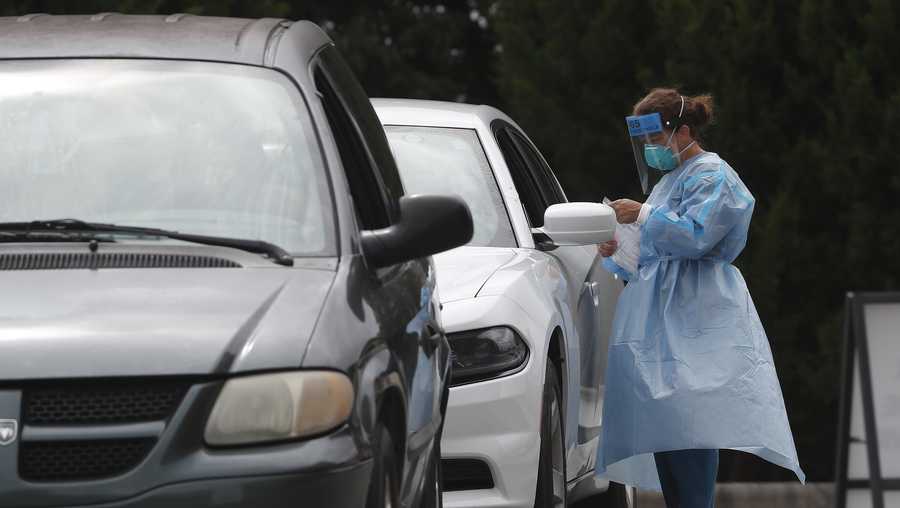US government suspends funding for virus research group at center of COVID-19 origin controversy
The U.S. Department of Health and Human Services on Wednesday suspended funding to EcoHealth Alliance, a virus research organization tied to controversy about the origins of the virus that causes COVID-19. The agency also proposed the group be blocked from receiving federal funds in the future, possibly for years.
Before COVID-19 emerged, a U.S. government grant to EcoHealth had funded studies into bat coronaviruses at the lab in Wuhan, China. Although U.S.-funded research at the lab has not been linked to the pandemic, the U.S. suspended funding to EcoHealth in 2020. The grant was later reinstated it. U.S. funding to the Wuhan lab has since been blocked.
In a new letter to EcoHealth Alliance and its president, Dr. Peter Daszak, HHS lists 30 pieces of information, some dating back to 2013 to support its decision. HHS said in a memo that EcoHealth failed to “adequately monitor” virus growth in experiments at the Wuhan Institute of Virology, notify the National Institutes of Health that viruses studied there “appeared to grow beyond permissible thresholds” laid out in a grant or provide requested information in a timely manner.
“HHS believes there is adequate evidence in the record for this debarment cause and that immediate action is necessary to protect the public interest,” Henrietta Brisbon, an HHS suspension and debarment official, wrote in the letter.
In a statement, a spokeperson for EcoHealth Alliance said the organization is “disappointed by HHS’ decision today and we will be contesting the proposed debarment. We disagree strongly with the decision and will present evidence to refute each of these allegations and to show that NIH’s continued support of EcoHealth Alliance is in the public interest.”
An HHS Office of the Inspector General report last year found that despite potential risks from research performed through the EcoHealth grant, the group was late to report information and the NIH failed to follow up. EcoHealth Alliance has said it was unable to access the NIH reporting system because of technical problems, but in a new HHS action memo, it says a forensic report found the group was “never locked out of the system.”
Earlier this month, House lawmakers questioned Daszak about EcoHealth’s record on research and safety, including at the Wuhan lab. In a statement on Wednesday, Brad Wenstrup, the Ohio Republican who chairs the House Oversight Select Subcommittee on the Coronavirus Pandemic, said its investigation into EcoHealth and the origins of COVID-19 is “far from over.”
The origin of the virus that caused COVID-19 continues to drive research and investigations by scientists, intelligence officials and lawmakers. Previous scientific studies have suggested the virus that causes COVID-19 likely emerged naturally in a Wuhan seafood market, but they have not identified a specific origin. The U.S. intelligence community has maintained it’s plausible that COVID-19 originated in a laboratory or in the wild.


